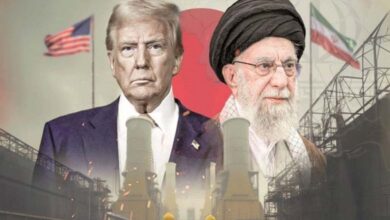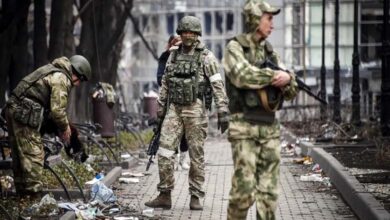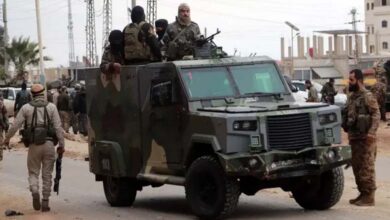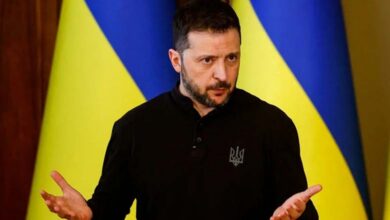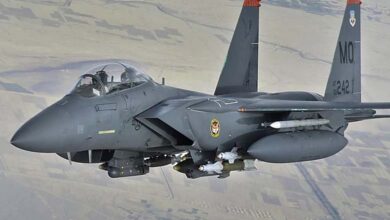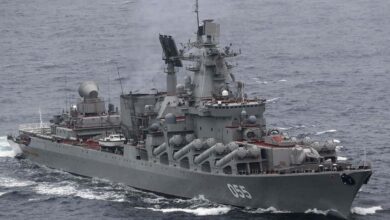Cold War on the Horizon… Russia: European Capitals are Targets if Missiles are Deployed in Germany
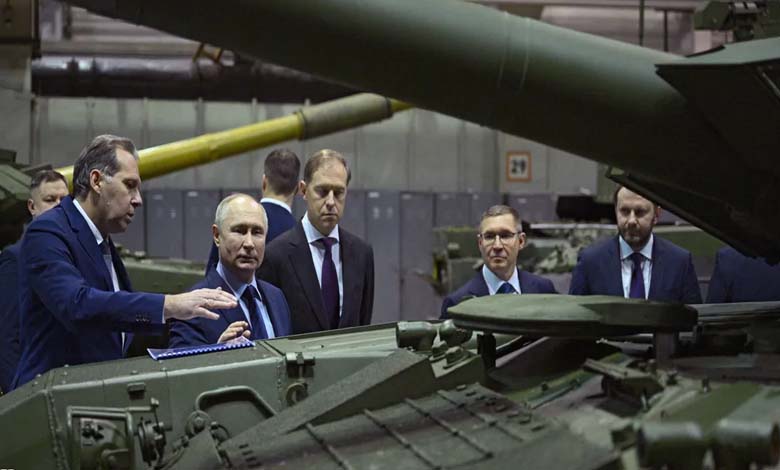
In a political dispute with strong and direct statements, Russia has evoked memories of the Cold War by warning that the deployment of long-range American missiles in Germany could make European capitals targets for Russian missiles. This warning comes after a German-American agreement to deploy missiles starting in 2026.
Missile Irony
Kremlin spokesperson Dmitry Peskov pointed out a “irony” that “Europe is a target for our missiles, while our country is a target for American missiles in Europe,” adding: “We have sufficient capacity to contain these missiles, but the potential victims are the capitals of these countries.”
He also stated in an interview with official television channel “Russia 1”: “We have sufficient capacity to contain these missiles, but the potential victims are the capitals of these countries.” Peskov suggested that such confrontations could destabilize Europe as a whole.
In response to the reference that the preemptive war ended with the collapse of the Soviet Union, Peskov said that “Europe is not in a better situation,” warning of a “repetition of history with a different formula.”
The Kremlin condemned this step, accusing Washington of moving towards a new Cold War and directly engaging in the conflict in Ukraine.
Russian Defense Minister Andrei Belousov and his American counterpart Lloyd Austin held telephone talks to discuss containing “the risk of potential escalation,” according to the Russian Defense Ministry. Since the Russian invasion of Ukraine in 2022, NATO countries led by the United States have been seeking to strengthen their defenses in Europe.
Missile Deployment in Germany
During the NATO summit on Wednesday, the White House announced that the United States plans to deploy new missiles in Germany starting in 2026, systems with longer ranges than those currently deployed in Europe.
The American weapons will include Tomahawk cruise missiles with a range of 2500 kilometers capable of striking deep into Russia, as well as SM-6 air defense missiles and newly developed hypersonic weapons.
The U.S. presidency, in a joint statement with the German government, stated that “these advanced capabilities demonstrate the U.S. commitment to NATO and its contributions to integrated European deterrence.”
German Government Approval
German Chancellor Olaf Scholz defended the U.S. plan to deploy long-range missiles in Germany, stating at a joint press conference in Berlin with Japanese Prime Minister Fumio Kishida that he does not agree with fears that this decision could lead to tension with Russia.
He added, “Missiles with a range of 2500 kilometers have a deterrent power and must prevent future attacks from the outset.”
Scholz emphasized that the deployment of American missiles in Germany is in “perfect alignment” with his country’s security strategy, adding that “this situation enhances security due to its deterrent effect.”
The German Chancellor reaffirmed that his country would control shipments of weapons sent to Ukraine in a way that avoids direct confrontation with Russia.
German Concerns about a New Cold War
The announcement of the deployment of American missiles has sparked criticism and anger in Germany, recalling memories of the Cold War for opponents.
Ralf Stegner, a member of parliament from the Social Democratic Party to which Scholz belongs, told the media group “Funke” that the decision regarding missiles could indicate the beginning of a new “arms race,” warning that “this will not make the world safer but, on the contrary, will lead us into a spiral of danger for the world.”
Sarah Wagenknecht, a left-wing figure in Germany, told “Der Spiegel” magazine that the deployment of American missiles “increases the risk that Germany itself will become a theater of war.”
The United States had previously deployed Pershing missiles in West Germany in the 1980s during the Cold War, sparking a wave of large protests against this decision in Germany. However, the United States only withdrew missiles from Europe after what they then called a “Russian threat.”


